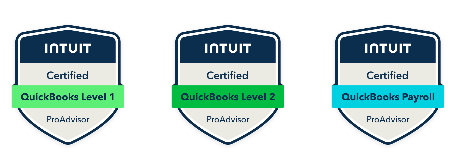Services Breakdowns
Click the drop down arrows below to view more detailed information about services offered.
Accounts Payable is responsible for managing a company’s short-term debts and obligations to suppliers or vendors. Its main function is to ensure that all invoices and bills are recorded accurately and paid on time, while maintaining good relationships with vendors and controlling company cash flow.
Key Functions Include:
Invoice Processing – Receiving, verifying, and recording supplier invoices for goods or services purchased.
Payment Processing – Scheduling and issuing payments (checks, ACH transfers, or electronic payments) to vendors based on agreed payment terms.
Expense Verification – Ensuring that all invoices are accurate, authorized, and matched with purchase orders and receipts.
Record Keeping – Maintaining detailed records of all vendor transactions and payments for accounting and audit purposes.
Reconciliation – Comparing vendor statements with internal records to ensure all amounts are accurate and up to date.
Cash Flow Management – Monitoring outgoing payments to manage the company’s liquidity effectively.
Compliance and Reporting – Ensuring adherence to internal controls, tax regulations, and financial policies.
In short, Accounts Payable helps keep the company’s finances accurate, its vendors satisfied, and its cash flow healthy.
Accounts Receivable is responsible for managing the money owed to a business by its customers for goods or services sold on credit. Its main function is to ensure that payments are collected efficiently, recorded accurately, and that cash flow remains steady.
Key Functions Include:
Invoicing Customers – Preparing and sending accurate invoices to customers after sales or service delivery.
Payment Collection – Tracking outstanding balances and ensuring timely receipt of payments from customers.
Customer Account Management – Maintaining detailed records of customer transactions, payments, and credit terms.
Credit Control – Evaluating customer creditworthiness and setting appropriate credit limits to minimize bad debts.
Reconciliation – Comparing customer payments and balances with internal records to ensure accuracy.
Follow-Up on Overdue Accounts – Sending payment reminders, managing collections, and resolving billing disputes.
Cash Application – Posting customer payments to the correct accounts and updating the general ledger.
Reporting and Analysis – Generating aging reports to monitor receivables and assess cash flow performance.
In summary, Accounts Receivable ensures that the business gets paid for its sales, maintains positive cash flow, and minimizes credit risks.
Records clean-up is the process of reviewing, organizing, and correcting a company’s financial records to ensure they are accurate, complete, and up to date. It’s often performed when books have fallen behind, contain errors, or haven’t been properly maintained.
The Purpose:
To bring the financial data back into order so the business can make informed decisions, file taxes correctly, and maintain compliance.
Key Tasks Typically Include:
Reviewing all transactions for accuracy and proper categorization
Reconciling bank and credit card accounts
Correcting duplicated, missing, or misclassified entries
Ensuring invoices, bills, and payments are properly recorded
Organizing receipts and supporting documentation
Updating financial statements to reflect true business performance
In short, records clean-up restores your books to an accurate, organized, and audit-ready state—laying the foundation for consistent, reliable bookkeeping going forward.
Records catch-up is the process of bringing all financial records up to date when bookkeeping has fallen behind. This service focuses on entering and reconciling all past transactions so that the books accurately reflect the company’s current financial position.
The Purpose:
To ensure that all historical data is recorded and current financial reports are reliable for decision-making, tax filing, and compliance.
Key Tasks Typically Include:
Entering and categorizing all past income and expense transactions
Reconciling bank, credit card, and loan accounts for missed months or years
Updating accounts receivable and payable records
Recording payroll, sales tax, and other financial activities
Reviewing reports for accuracy and consistency
Preparing up-to-date financial statements (Balance Sheet, Profit & Loss, etc.)
In short, records catch-up gets your books current, helping you move forward with accurate, organized financial data and peace of mind.
Payroll for an outsourced bookkeeper refers to the process of managing a client’s employee compensation from outside the business, ensuring that all employees are paid correctly, taxes are filed properly, and payroll transactions are accurately recorded in the books.
The Purpose:
To relieve the business owner of the time and complexity of payroll processing while maintaining accuracy, compliance, and organized financial records.
Key Responsibilities Include:
Calculating wages, overtime, bonuses, and deductions
Processing payroll on a scheduled basis (weekly, biweekly, or monthly)
Handling direct deposits or issuing paychecks
Calculating, withholding, and filing payroll taxes with federal, state, and local agencies
Filing year-end payroll reports and forms (W-2s, W-3s, 1099s, etc.)
Ensuring compliance with labor and tax laws
Recording payroll entries into the client’s bookkeeping software
In short, an outsourced bookkeeper manages the entire payroll process remotely, ensuring employees are paid on time, taxes are compliant, and financial records stay accurate and up to date.
If you still have questions, click "Contact Me" and send me an email. OR click here to set up a Free Consultation call.


